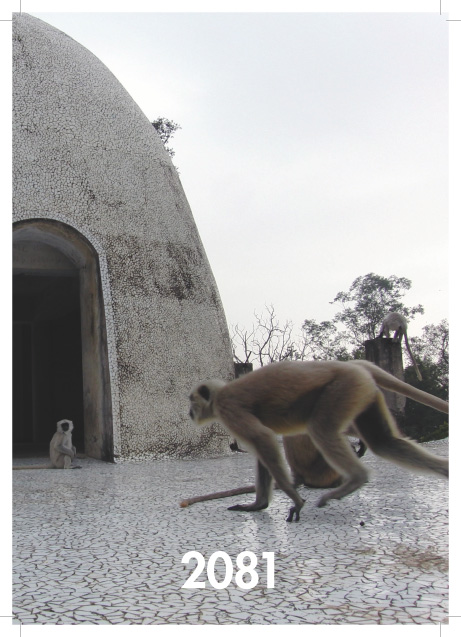
What happened 2081?
Congresses in Berlin at Kunst-Werke, in New Delhi, Sao Paulo, Johannesburg and an archive in Tel-Aviv. Georg Diez, Christopher Roth.
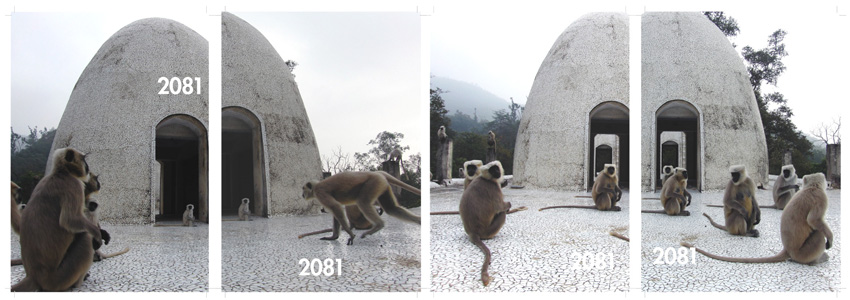
Today is Thursday or Monday, anyway, this is the year 2081.
The news spread fast that we have lived in a far-reaching, collective amnesia for some decades now. Alarming and at the same time promising discoveries were recently made in New Delhi, Brazil, Berlin, Tel Aviv and Johannesburg.
All of them seem to say: we knew more.
The findings contain remains of huge memory launchers, hidden plans and enciphered discriptions and a secret archive conserved on something called “hard disks”. What we thought as concrete high-rises might be relics that recount the desperate struggle to extant knowledge.
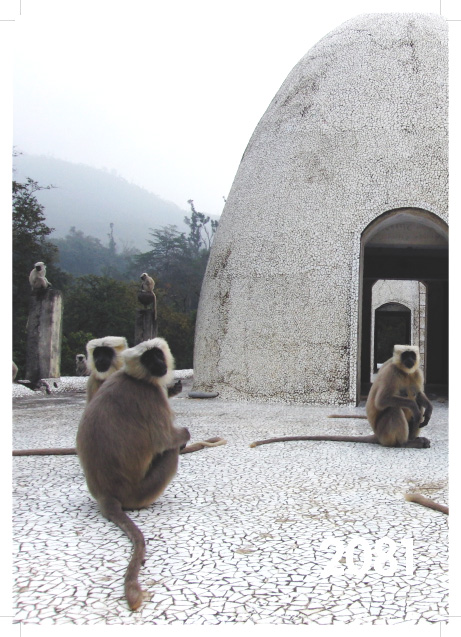
With these findings we are able to reconstruct our history. We will recover concepts, ideas and narratives from the past. We will obtain meaning.
But what had happened? Our ancestors began to externalize all their knowledge, to outsource their memory, their presence. Facebook knew them better than their families; the revolution took place on Twitter. At some point they agreed that they live in one place and remember in another.
As it seems the world got into trouble in the late 2010s: Iranian hackers succeeded to clear all information about something called the “Holocaust” from global computers for a few months. That led to the extinction of old knowledge of Islam. And it got worse. In the late 2020s the first attempts were made to outsource knowledge into space. The world memory (Weltgedächtnis) was stored on radio airwaves and spread onto colonies of fine particulates around the earth. Two sorts of difficulties were encountered: The resistance against the expensive project grew globally. And in outer space the knowledge mutated. Other than planned, the colonies formed ulcers, and the deciphering of meaning became almost impossible.
The attempt to rescue the world memory was abandoned in the 2040s, when only 60 to 80% were disseminated in outer space. Now, in 2081, our knowledge is largely lost.
As a consequence capitalism and communism are gone. Democracy does not exist anymore. In 2081 algorithm is ruling. It determines what is done and what is not done. Opera, books and theatre are forbidden. Drama is forbidden. Violence is forgotten. Nobody knows anymore what conflict was. Google has replaced the United Nations. Who was this Mr. Reagan? Google doesn’t know anymore.
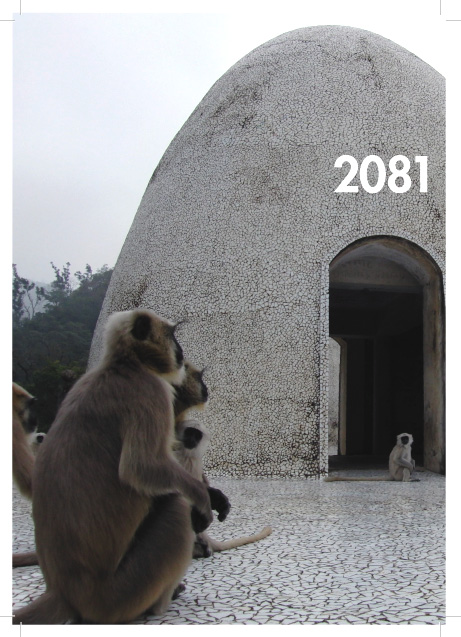
Since all reproduction is done via cloning men are almost extinct. Men are forbidden anyway. Men are violence. Men are drama. Women are allowed. Beards are not allowed.
The leading religion is neo-Yogaism. Breathe in, breathe out. Islam turned into Sufi-Yogaism. Everyone is happy.
Another important discovery are the Rishikesh Files. Two forgotten researchers, Georg Diez and Christopher Roth embarked in 2010, on a research project called 80*81. What they had in mind was a paradigm shift. They conducted a series of interviews, they traveled, published eleven books, performed in theaters, galleries, and nightclubs. Now the Rishikesh-Files have surfaced, from a past that thought of us as their future. And even though the searchers have long been forgotten, we now know of the Grand Transition at hand. We discover ourselves in our broken fragments.
Now it is time to evaluate and discuss these findings. In a series of operas, congresses and opera-congresses we will analyze the years 2010 and 2011, the Grand Transition and development up to now, to the year 2081––whereby the basis of this research is as volatile as our present. Anthropologists, yogis, ethnologists, philosophers, physicists, astrologers, historians, and shamans interpret a time that otherwhile appears uncertain, out of focus and blurred, but makes sense, not only in an emotional way.
The hits of the 2030s––the airwaves served as carrier––will be reconstructed and rerecorded.
2081.li is insofar retro-futurological, as it uses the methods of archeology to read the future.
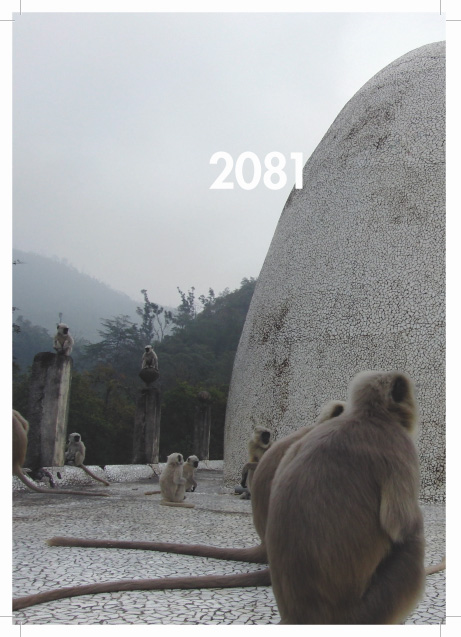
TED- like Congresses from 2081 will analyze the recent history from 2010 and 2011 until now, the Grand Transition, and the future.
We are all in this together, how to make sense of the fragments left to us. We try to reconstruct the Memory of the World.
